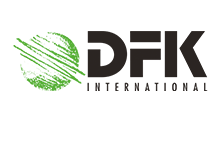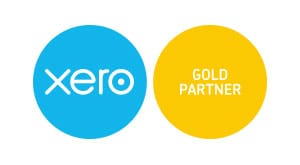Corona Virus Job Retention Scheme – a reminder
In significant changes announced to the governments’ coronavirus job retention scheme on 29 May, the scheme closes to newly furloughed employees from Wednesday 10th June. The scheme has been updated and extended until the end of October 2020, however, it will only be available to support any employee who has previously been on furlough prior to the 30th June 2020. In order to make an eligible claim, an employee must be furloughed for a period of at least 3 weeks. Any employee not previously included in a claim will, therefore, need to be furloughed on or before the 10th June 2020 in order to qualify for a 30th June claim and to remain eligible after that date.
From 1st July the government will continue to pay the full grant of up to £2,500 plus employers NI and pensions contributions. However, employers will be able to bring employees back on a part time basis and still claim a proportion of the grant. The available grant will be calculated on a time apportioned basis between the employees normal working hours and the hours worked.
From 1 August, the level of government grant will be slowly tapered to reflect the fact that people will be returning to work. Any individuals who are furloughed would continue to receive 80% of their wages up to £2,500 during the time they are on furlough. However, from 1 August, whilst the government will continue to contribute 80% of wages up to a cap of £2,500 per month, employers will start to pay the employer NICs and pensions contributions on the furlough pay. Any grant will be time apportioned for employees that have returned to work on a part time basis.
From 1 September, the government’s contribution will reduce to 70% of wages up to a cap of £2,187.50 per month. Employers will have to pay the additional 10% along with the employer NICs and pension contributions. The grant will continue to be time apportioned for employees returning to work part time.
From 1 October, the government’s contribution will reduce to 60% of wages up to a cap of £1,875 with employers paying the additional 20% along with the employer NICs and pension contributions. Time apportionment will again apply for employees returning to work part time but this will be the final month that a claim can be made.
Local Authority Discretionary Grants Fund
Any small or micro businesses who were ineligible for either the Small Business Grant Fund or the Retail, Hospitality and Leisure Grant Fund – both of which were based on the rateable value of the business premises – may be eligible to apply for the Discretionary Grants Fund.
To be eligible, businesses must:
- Be based in England
- Have fewer than 50 employees
- Have fixed building costs such as rent (which is typically less than £51,000 per annum)
- Have been trading on 11 March 2020
- Have been adversely affected by Coronavirus
- Not have been an ‘undertaking in difficulty’ as at 31 December 2019
- Not be in receipt of any other COVID-related government grants – other than the Coronavirus Job Retention Scheme (CJRS) or Self-Employed Income Support Scheme (SEISS)
Businesses will still be able to make a claim if they have received either a Bounce Back Loan or a Coronavirus Business Interruption Loan.
Local authorities will prioritise businesses such as:
- small businesses in shared offices or other flexible workspaces
- regular market traders
- bed and breakfasts paying council tax instead of business rates
- charity properties getting charitable business rates relief, which are not eligible for small business rates relief or rural rate relief
Local authorities may also prioritise other business types, but may also impose other restrictions to those shown above.
This fund may award a taxable, non-repayable grant of £25,000, but more commonly the grants paid will be up to £10,000, dependent on the size of the business.
The larger grant of £25,000 will be paid in exceptional circumstances where a larger small business with high property costs has been severely impacted by lockdown and would significantly impact local residents if the business were to fail. The threshold of £51,000 of fixed building costs will not necessarily apply in these exceptional circumstances.
Applications should be made through your local authority website. Each local authority will have a different deadline for applications so anyone intending to make a claim should contact their local authority without delay.
If you have any questions on the above please do not hesitate to get in touch with your usual RPG contact.








 Production
Production
